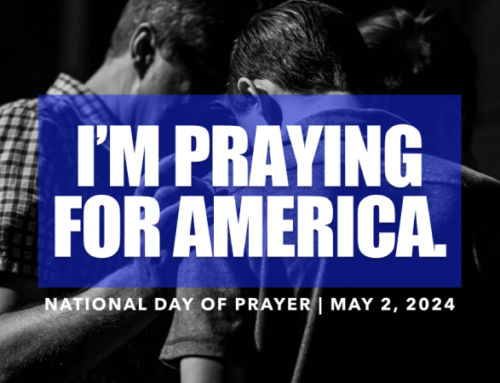Ten Canonical Facts To Memorize
The Internet loves lists. Some YouTube channels exist only to create Top Ten lists of everything imaginable under the sun. Most of these Top Ten lists are forgotten as soon as they are read. So it is surprising to see a writer of a Top Ten list ask readers to memorize his list.
Yet that is exactly what seminary professor Michael Kruger does in his ten-part series “Ten Basic Facts about the New Testament Canon that Every Christian Should Memorize.” I came across this in-depth series while researching an article for the December 2015 issue of AFA Journal, and it is too important not to share. Christians of every age should know these facts because it deepens our understanding and appreciation of Scripture while providing answers to many attacks by unbelievers against the Word of God.
Below is a relisting of Kruger’s ten basic facts with my personal synopsis of each.
- The New Testament books are the earliest Christians writings we posses. While this may seem like a no-brainer, people assume books rejected as Canon are as old as those included in today’s Scriptures. Many try using this falsehood to attack the authenticity and authority of Scripture. In reality, the youngest book in the New Testament Scripture is Revelation, written around 95-96 AD. Many books were written far earlier. So early, in fact, eyewitnesses to events recorded in the gospels were still alive during their early circulation and would have refuted any inaccuracies recorded in them.
- Apocryphal writings are all written in the second century or later. Apocryphal writings are books that may appear to have canonical authority, but they do not. Many carry the names of famous Christians such as the Gospel of Peter, Gospel of Thomas, and Acts of John. But all of the books were written in the later part of the second century, some even in the third and fourth centuries. Therefore, they do not have the credibility of the books written in the first century.
- The New Testament books are unique because they are apostolic books. In order for a book to be considered canonical and authoritative in the New Testament era, it had to be written by, or closely associated with, an apostle. This is important because the apostles were sent out in Matthew 10:14, Matthew 10:20, and Mark 3:14-15 with the authority of Jesus. As Kruger says, “In sum, the apostles had the very authority of Christ Himself.” Other books, including all of the Apocrypha that might carry their names, were not written by the apostles and therefore did not have their authority.
- Some New Testament writers quote other New Testament writers as Scripture. I have often wondered if the people writing the New Testament knew they were writing would what become Scripture. Reading 2 Peter 3:15-16 leads me to believe they did. In that passage, Peter refers to Paul’s letters as “Scripture” on par with the canonical authority of the Old Testament. This also speaks to how the early church viewed the writings of the apostles. They knew these books were not like other books. They were special and authoritative.
- The four gospels are well established by the end of the second century. An early church father named Irenaeus said, “It is not possible that the gospels can be either more or fewer than the number they are. For, since there are four zones of the world in which we live and four principle winds. … ” They key to the quote is that he specifically numbers the gospels as four and only four. He said that around 180 AD, meaning that the four gospels were written, recognized, circulated, and seen as canonical by the late second century at the latest.
- At the end of the second century, the Muratorian fragment lists 22 of our 27 New Testament books. The Muratorian fragment is named after Ludovico Antonio Muratori, the man who discovered it. It dates from the seventh or eighth century. The list was written in Greek and scholars have dated the list itself as originating in the second century, around 180 AD. This is important because, as Kruger points out, “[T]here are two significant implications we can draw from this. First, this means the most of the debates and disagreements about canonical books in early Christianity only concerned a handful of books. … Early Christianity was not a wide open literary free for all, where there was no agreement on much of anything. Instead there was an agreed-upon core that no one really disputed.”
- Early Christians often used non-canonical writings. Many modern Christians learn this fact by reading an article or hearing a lecture from someone attacking the Canon. It is important for all believers to understand that Christians did use non-canonical writing, but it is equally important to understand how they used these writings. They read and used these books as helpful, illuminating, or edifying writings. Many preachers today will quote the Westminster Catechism, but that does mean people view it as authoritative as Scripture.
- The New Testament Canon was not decided at Nicea – nor any other church council. No matter what modern books and movies try to say, the New Testament Canon was not decided by a bunch of men in togas sitting around a Roman bath. The Council most often cited as responsible for forming the Canon is Nicea, which, according to Kruger, “was concerned [primarily] with how Christians should articulate their beliefs about the divinity of Jesus. Thus it was the birthplace of the Nicean Creed.”
- Christians did disagree about the canonicity of some New Testament books. Origen, an early Christian scholar who lived around 184-254 AD, wrote about 2 Peter, 2 and 3 John, and James being doubted and disputed as canonical in his day. But it should be noted that Origen says only some people disputed some of these books. These were a handful of books questioned by a handful of people. We must keep in mind that God did not list the New Testament Canon on a stone tablet like He did the Ten Commandments. He chose to work through the history of fallen man. That history is not always squeaky clean. It gets messy and records many disagreements.
- Early Christians believed that canonical books were self-authenticating. This is the question nearly all questions about the Canon point to. How can we know with certainty that the books we have in the Bible are the books God intended? Early church fathers believed authentic, authoritative, canonical books could be identified by internal qualities. This points to the role of the Holy Spirit in the formation of the Canon. Jesus said in John 10:27, “My sheep hear my voice, and I know them, and they follow me.” There is much to be said about early Christians being given discernment from the Holy Spirit in recognizing books written from the heart of God and those written from the mind of man.
Those are Michael Kruger’s ten concepts every modern Christian should memorize about the New Testament Canon. Did he leave anything out you feel we should memorize, or at least acknowledge? Let us know in the comments.








Leave a Reply, please --- thank you.